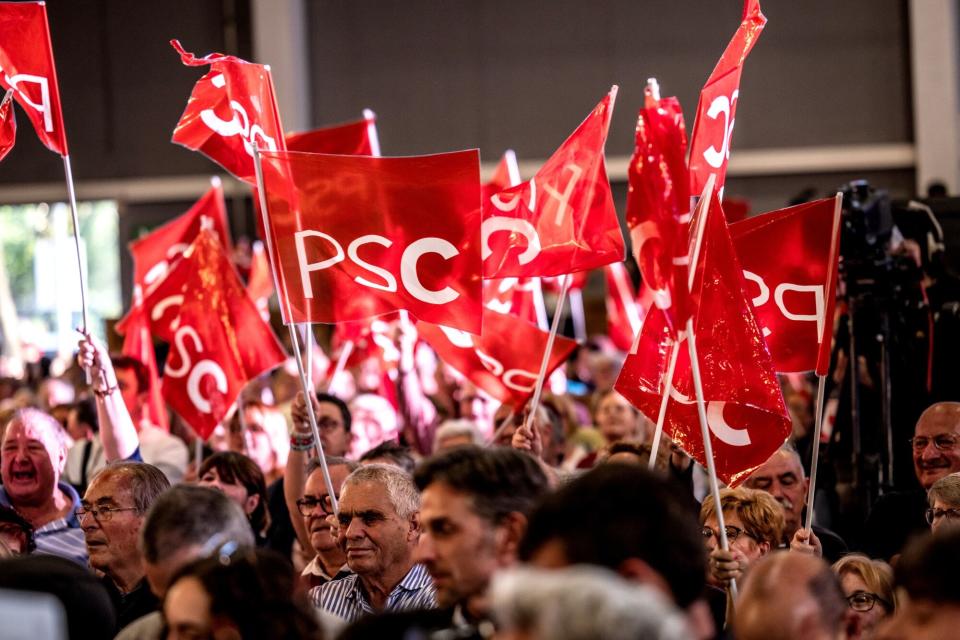Spanish Socialists Lead Exit Poll in Catalan Regional Election
- Oops!Something went wrong.Please try again later.
(Bloomberg) -- Spanish Prime Minister Pedro Sanchez’s Socialist party is leading exit polls in a regional election in Catalonia in a vote that could complicate his ability to govern in Madrid.
Most Read from Bloomberg
Trump Vows ‘Day One’ Executive Order Targeting Offshore Wind
Macron Puts French Banks in Play With Plan to Transform Europe
Tesla Rehires Some Supercharger Workers Weeks After Musk’s Cuts
China to Start $138 Billion Bond Sale on Friday to Boost Economy
The Socialists led by Salvador Illa are set to win 37 to 40 seats, according to the exit poll published by TV3, the Catalan public TV broadcaster. The separatist group Junts is set to win 33 to 36 seats, while ERC, the leftist pro-independence party that currently governs the region, is set to get 24 to 27 seats.
The winner would need 68 seats to get an absolute majority in the parliament, meaning a round of negotiations to form a coalition will be likely.
A win by the Socialists would represent an endorsement of Sanchez’s strategy in Catalonia of trying to tamp down the pro-separatist push by offering concessions, including amnesty for those involved in an illegal independence referendum in 2017.
But a strong showing by the Socialists could also spell trouble for Sanchez’s government, which relies on both the main separatist groups to pass legislation. If a Socialist victory in Catalonia leads to either the Junts or the ERC pulling support for the Socialists in Madrid, it could cause legislative deadlock and potentially a new national election.
Even if the pro-independence bloc comes out ahead, it is far from certain that they will strike a deal given the animosity between Carles Puigdemont, the leader of the Junts, and ERC chief Pere Aragones. After the two parties formed a coalition in 2021, Junts stepped away from it, sending the region on a path to Sunday’s snap election.
A repeat vote may be a likely scenario, according to experts and party insiders. That won’t be good for Catalonia, it won’t solve any of the fundamental problems facing Spain or Sanchez, but it might keep him on the high wire for another few months at least.
Public transport was disrupted in part of Catalonia on Sunday due to problems in the regional train network, which is run by the central government. The two leading pro-independence parties demanded that voting hours be extended in case people failed to make it to the ballot boxes, but the national electoral board dismissed the requests, leaving it to local boards to decide.
Turnout was at 45.8% at 6 p.m., compared with 45.6% at the same time in the previous regional election in 2021, when restrictions were in place to address the effects of the Covid pandemic.
Most Read from Bloomberg Businessweek
Cheap Prison Labor Is Keeping People Locked Up Longer, Suit Alleges
‘The Caitlin Clark Effect Is Real,’ and It’s Already Changing the WNBA
©2024 Bloomberg L.P.



